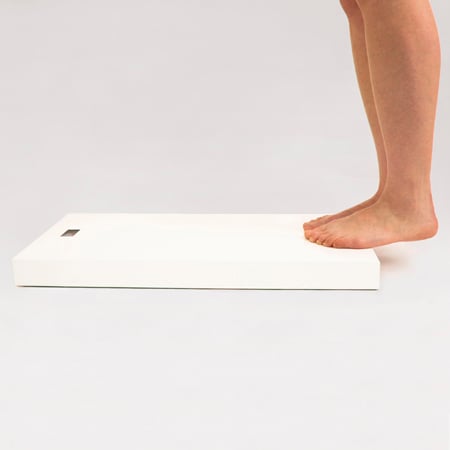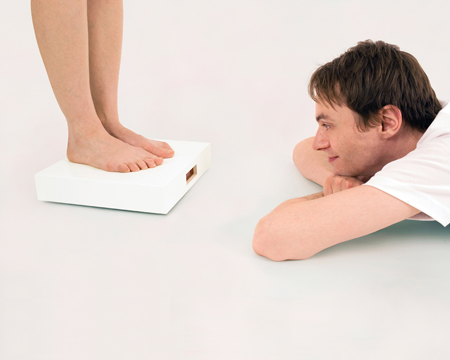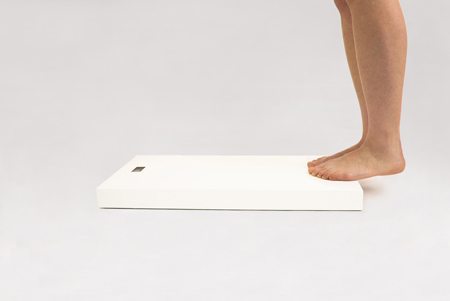
Asimov's First Law scales by Alice Wang
Designer Alice Wang has created a range of weighing scales that allow you to deceive yourself about your weight.

Called Asimov's First Law, the collection explores whether we are being psychologically harmed by the simple gadgets that surround us. Above: Half Truth scales make another person decide whether to lie or tell the user the truth about their weight.

The collection is named after the first of the Laws of Robotics set out by writer Isaac Asimov in his 1942 short story, Runaround, which states that a robot may not harm a human. Above: Open Secrets scales, in which the user's weight is transmitted to another person's mobile phone. They can then choose how and when to break the news.

Above: the White Lies scales show the user to be lighter and lighter as they edge further and further backwards.
Here's an explanation of the concept from Alice Wang:
--
Asimov’s First Law
“A robot may not harm a human being.”
The first law of robotics by Isaac Asimov.
Artificial intelligence is a topic widely used in the media, however, exactly how far are we from such technology? Are these fears towards robotic developments necessary or purely irrational? What is it about these currently fictional characters that scare us? Are there existing domestic objects that already break this law?
Scales, although they don’t perform physical harm, have been subtly damaging us psychologically. Should objects like these exist in a complex society like ours where people are more emotionally fragile?
WHITE LIES
This scale allows one to lie to him/herself. The further back you stand, the lighter you become. The user can gradually move closer and closer to reality.
HALF-TRUTH
This scale puts your partner responsible for deciding whether to lie or hit you with the truth.
OPEN SECRET
This scale reveals your weight every time you weigh yourself by sending a text message to the desired mobile phone. The receiver is then responsible to reveal the answer immediately or the next time you two meet.